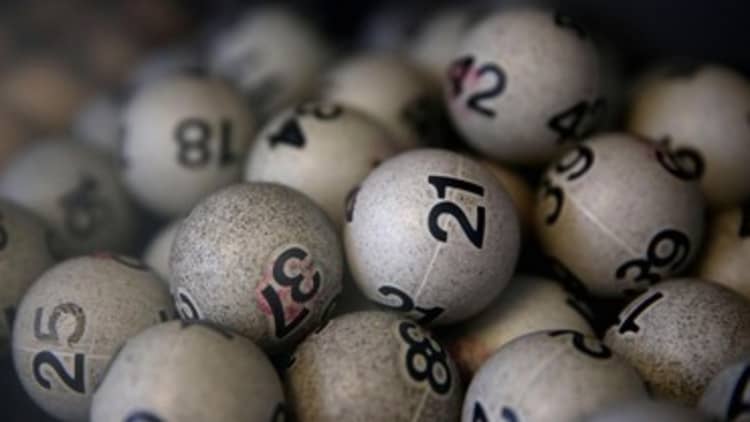
The odds of winning are the same — and now the jackpot's at a record.
That might sound like the perfect scenario to try your luck on a $2 lottery ticket. But assuming that a larger jackpot also means a better time to play might not be the best strategy.
According to historical lottery data and analysis of purchasing behavior in past drawings, the best time to gamble on the lottery might have been with a Powerball jackpot that was about $600 million smaller than it is now. (Tweet This)
First off, it's worth defining the measure that gamblers and statisticians look to in deciding whether a bet is worth the wager: expected value.
Essentially, the expected value of a bet is derived from the probability of winning a bet and the size of the payout.
In determining if a bet makes rational sense, gamblers look for bets that offer an expected value greater than the cost to play. In the case of Powerball, the cost to play is constant at $2 per ticket, so the focus falls squarely on a ticket's expected value. But a key variable is often left out of the equation — the probability of winners splitting a jackpot, which is influenced directly by the number of tickets purchased.
According to analysis by computer scientist Jeremy Elson, who looked at purchasing behavior over past drawings, as an advertised jackpot grows, more and more tickets are purchased. For last Saturday's then-$948 million jackpot, more than 440 million tickets were purchased.
At an even higher jackpot in Wednesday's drawing — $1.5 billion — Elson is forecasting close to one billion tickets will be purchased. To be fair, that billion ticket sales forecast is based on extrapolating into uncharted territory of the largest Powerball in history. It could be an overestimate, considering Powerball's reported ticket sales of just over 300 million at midpoint Wednesday — in which case it could also present a unique opportunity.
Intuitively, the more tickets in play, the higher the probability of seeing multiple winners and a split jackpot. That in turn mathematically lowers the expected value of an individual lottery ticket.
Mathematician and Wharton Ph.D. candidate Seth Neel ran an independent analysis for the impact on expected value across different ticket amounts with the jackpot at $1.5 billion, and even after factoring in taxes, lump sum conversions, and lesser prizes:
- At 1 billion tickets sold, the expected value came in at about 71 cents,
- At 800 million tickets sold, the expected value came in at about 82 cents,
- At 600 million tickets sold, the expected value came in at about 97 cents, and
- At 400 million tickets sold, the expected value came in at about $1.20.
Of course, no one plays the lottery for the expected value of a ticket. Doing so wouldn't make much sense seeing as the $2 cost of a Powerball ticket is almost always more than the expected value (the house essentially always wins). But if that's the case, why were 440 million tickets purchased for Saturday's drawing?
Economists, and our revealed preference, point to the idea that there must be a certain level of utility derived from the thrill of the game and the chance at walking away with a large jackpot. Behavioral economists, citing the foundational work from psychologists Daniel Kahneman and Amos Tversky, would also add that humans have a tendency to overestimate low-probability events, such as winning the lottery, making any perceived expected value of a lottery ticket much higher.
The point is there are many logical reasons to explain what is otherwise considered to be an irrational gamble. However, if you're looking to rationally maximize the worth of your irrational $2 gamble, choosing to play when a record-jackpot is stimulating a news frenzy and mass hysteria might not be the best strategy.
But then again, you can't win if you don't play.



